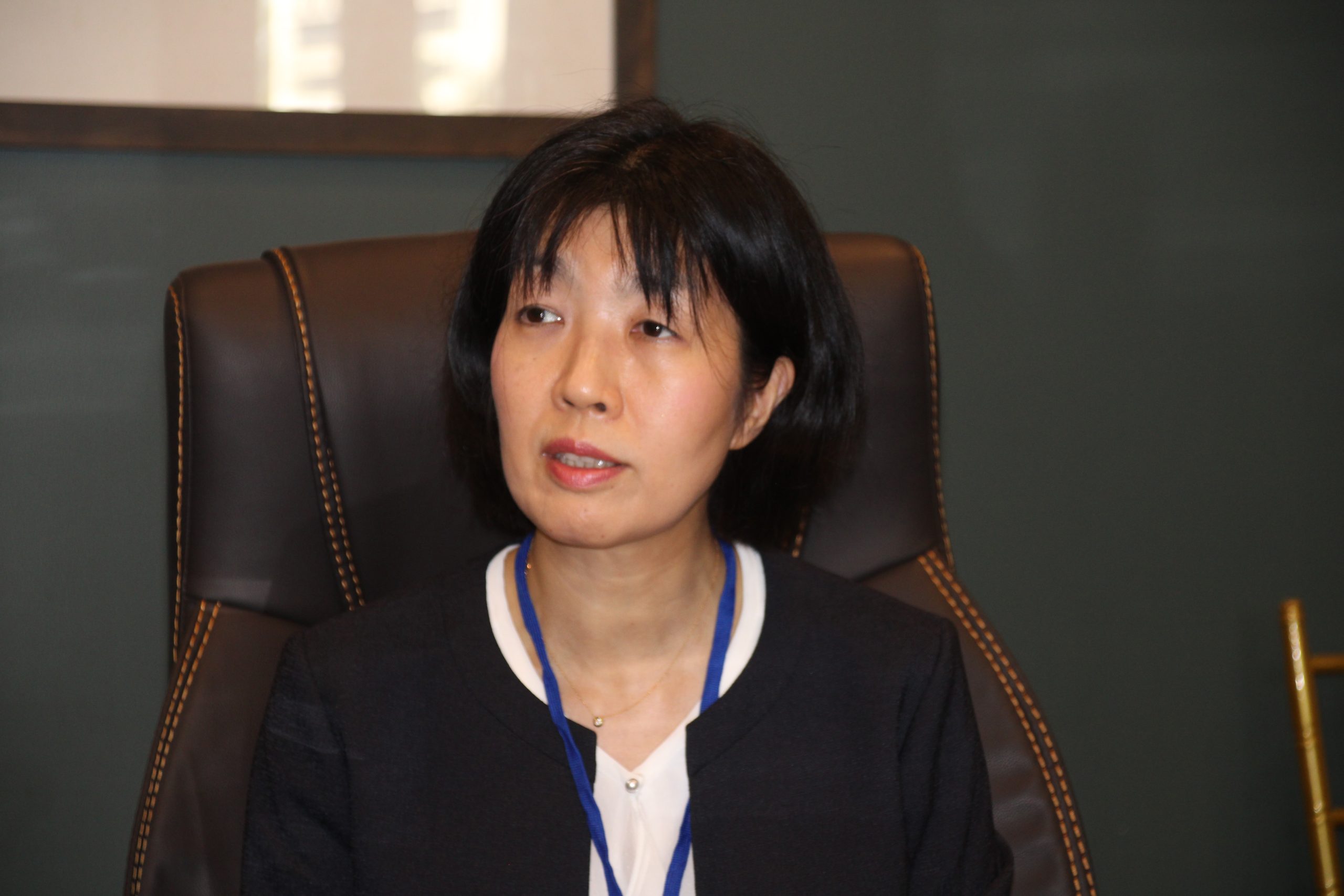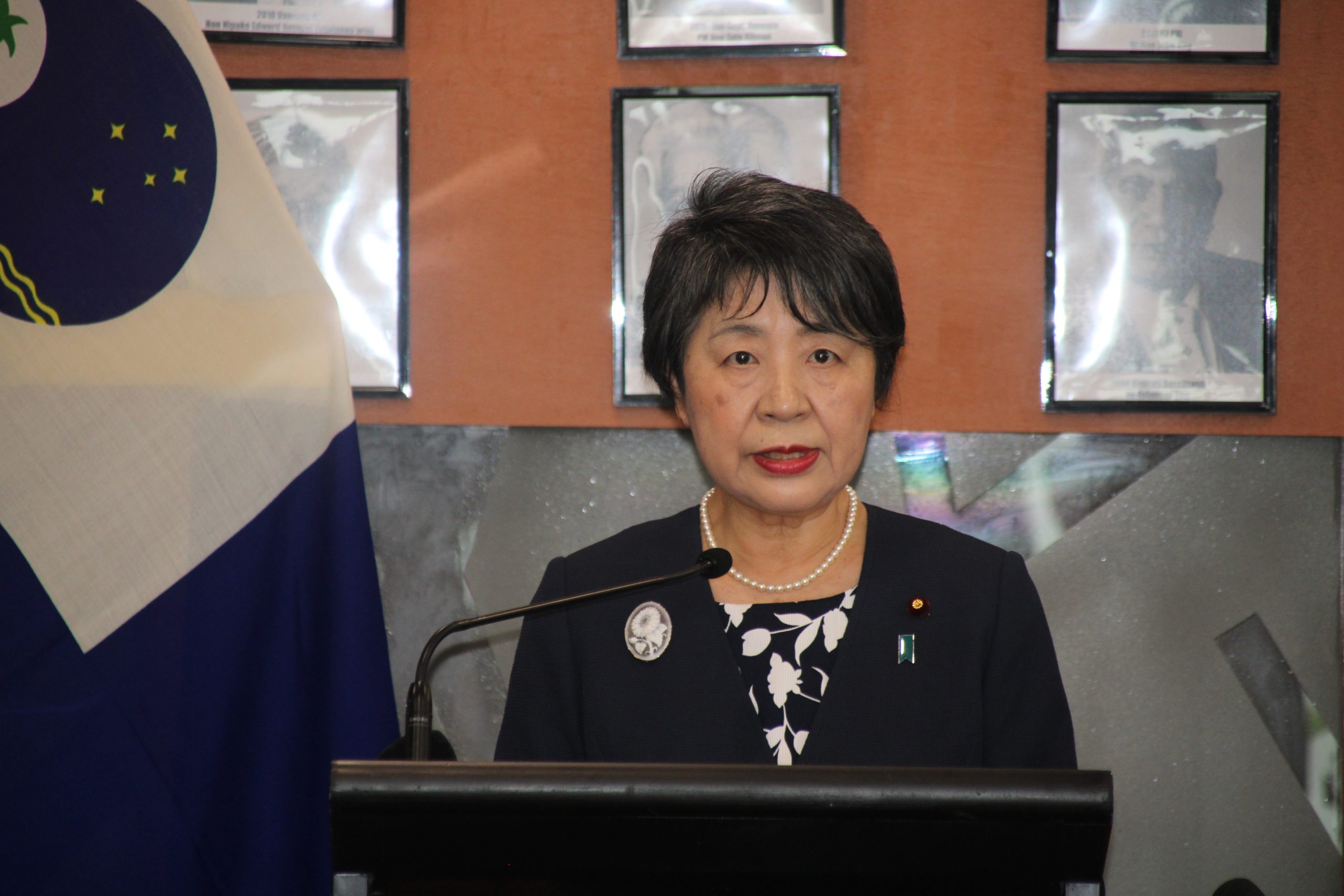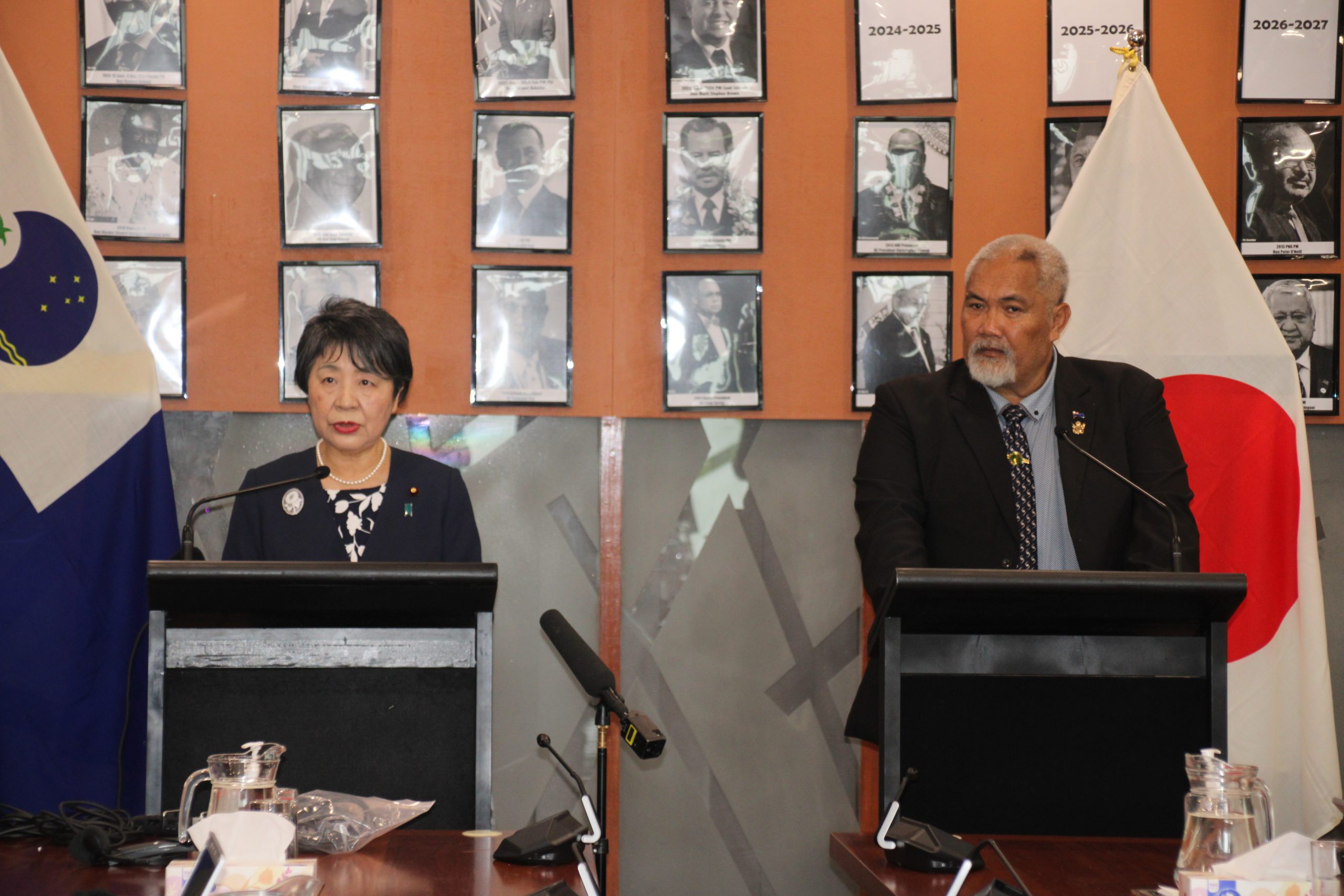The government of Japan reaffirmed its commitment to ensuring the safety of releasing treated water from the Fukushima Daiichi nuclear power plant into the Pacific Ocean.
In a press briefing in Suva Monday, Japan’s Deputy Press Secretary Mariko Kaneko said the decision to discharge the treated water into the ocean came after six years of extensive research and consultation with the International Atomic Energy Agency (IAEA), the authoritative international organisation regulating nuclear activities.
Kaneko said the Advanced Liquid Processing System (ALPS) has been instrumental in treating the water, removing all nuclides except tritium from the contaminated water used to cool down nuclear reactors.
“We spent over six years to decide which method is the best and safest way because after discharging, maybe through land in Japan or evaporating into the air these methods are considered difficult to monitor so, most chosen method by other nuclear power plants all over the world was discharging into the water that can be monitored correctly,” she explained.
“Every nuclear power plant in the world needs water to cool down the reactor, not only the reactor that had an accident, like Fukushima, all the nuclear power plants have water to cool down and then that water needs to be clean in a way.
“We were using a lot of water to cool down the reactor in the Fukushima Daiichi nuclear power plant and we could not continue just storing it in the tank and a lot of the other nuclear power plants in the rest of the world do discharge the waters, this treated waters, into ocean.
“It’s a common way of discharging and based on the discussion and consultation with IAEA which is the authentic and authority international organisation that has authority to decide, came up with a regulation of the nuclear activities, until then we have always been in consultation with the IAEA and came up to a decision that we are discharging the treated water, and treated water is safe.”
She highlighted that Japan dilute very much until it’s so below the regulatory standards and the discharge water has the amount of tritium less than other waters discharged in other countries,
“We know how much of the tritium is discharged from other nuclear power plants in rest of the world and even compared to those waters, the waters coming out from the operating nuclear power plant that was not an accident, we are discharging lower amount because we diluted enough and that is how we do it.”

She assured this method aligns with international standards and ensures the safety of both Japanese citizens and neighboring Pacific Island countries.
She reiterated the Prime Minister of Japan, Fumio Kishida when he received the delegation from the Pacific Island told them that, “We will not discharge water that would harm the health of both Japanese people and the people of the PIF countries.”
“We believe that what we have done that until now is safe, and we will continue to ensure that is safe and have continued dialogue and discussions with the Pacific Island countries on this matter,” Kaneko said.
Kaneko underlined that the discharge location is within Japan’s territorial waters, where the water will be diluted and dispersed naturally, minimising any potential risks.
She stressed that Japan has been vigilant in monitoring not only the discharged water but also fisheries and agricultural products from the surrounding area.
Products exceeding regulatory standards are withheld from the market, ensuring consumer safety.
“We are monitoring the fisheries products and as well as agricultural products produced in that area and are already in the market of Japan and even in other countries now.
“We monitor the safety of those products as well.
“And if we find anything that has some nuclides that is over the regulatory standard then that product will not go into the market, that is how we’ve been doing it until now, and we didn’t have big problems.
“Already most of the countries have lifted the import restrictions on our products. Even the products from that area are of course not in Japan, but also in other countries,” she said.
While asked by Pasifika Environews if there are any plans for international cooperation in managing the aftermath of the discharge and mitigating any potential environmental impact, Kaneko said that Japan has cooperated with third-country laboratories to ensure thorough oversight and verification of the discharged water’s safety.
“Through IAEA, we have been cooperating with other third country parties as well who have knowledge in monitoring these waters or the ocean. We are trying to be transparent, and we are confident. We also had expertise, but IAEA has more expertise and they’re always there monitoring with us and reviewing.”

During a joint press statement at the Pacific Islands Forum (PIF), Monday, Japan’s Foreign Affairs Minister, Yoko Kamikawa said in the 5th Japan- Pacific Ministerial Interim Meeting, Japan and PIF members agreed to recognise the IAEA as an authority, a nuclear safety and to continue a dialogue with high level of transparency based on scientific evidence.
She told the Ministers in the meeting that the discharge has been carried out in accordance with relevant international safety standards and practices, and Japan is committed to continue working closely with the International Atomic Energy Agency (IAEA).
Minister Kamikawa also expressed her appreciation for the science-based discussions that Pacific Island Countries have been engaging in with Japan and the IAEA.
She concurred on maintaining the ALPS issue as a standing agenda item for PALM, supported by an ongoing dialogue process.
SOURCE: PACNEWS/PASIFIKA ENVIRONEWS














